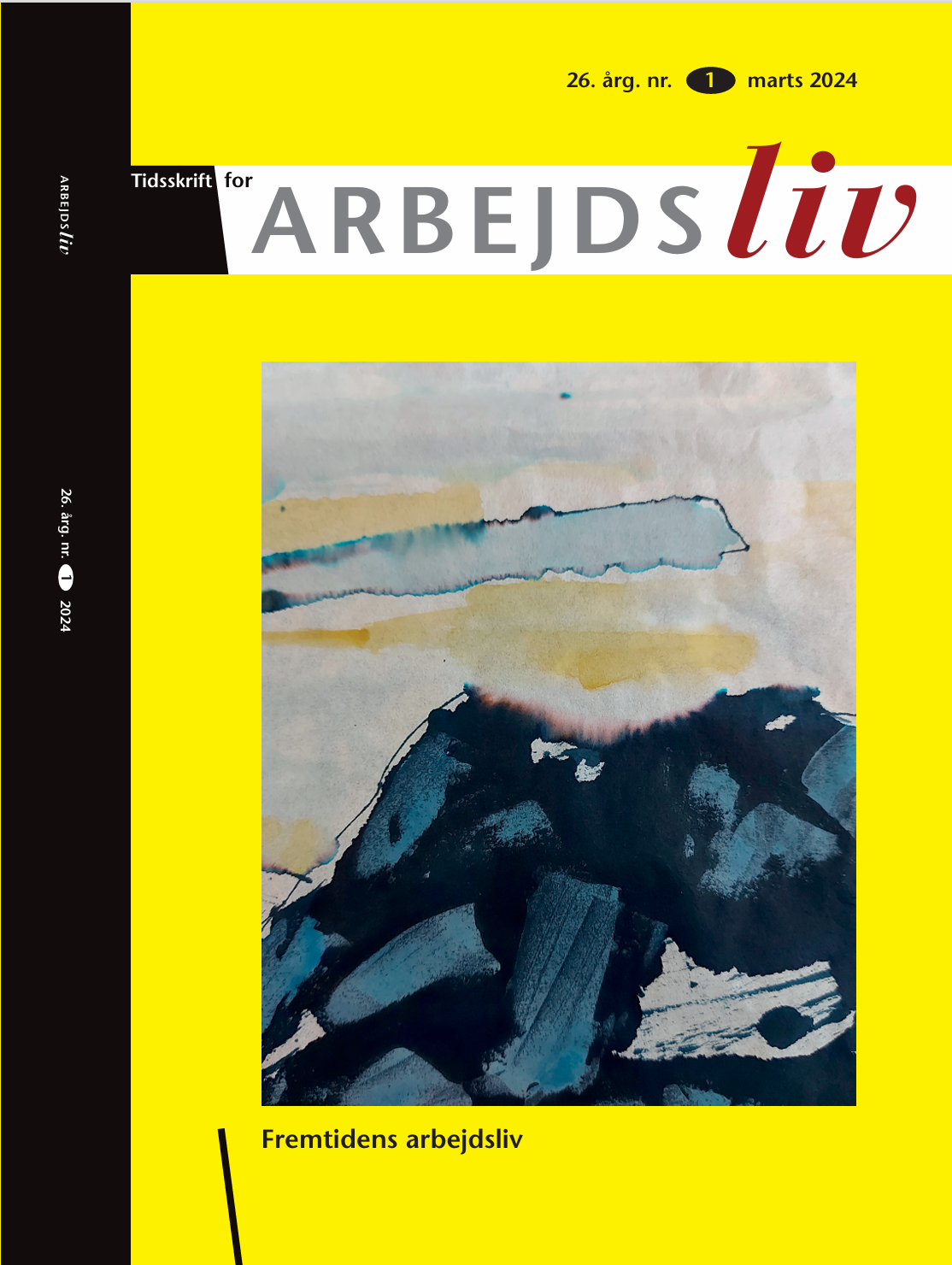Hybrid work: Challenges in a flexible community
Keywords:
Fleksibilitet, Jobtilpasning, Hjemmearbejde, Individuelle præferencer, SpændingerAbstract
In a qualitative and exploratory study of 52 employees and managers in a large Danish organization, I demonstrate how the lockdowns have legitimized working from home. Secondly, I identify four individual needs and expectations for autonomy and flexibility. These individual preferences for hybrid work are a consequence of the individual’s private life, understood as, for example, being a family with small children, or not having children living at home, the typical commute time to and from the workplace, and whether the individual wants to be able to – away from the noisy open space office – focus on performing the work tasks. Thirdly, I demonstrate how different needs for hybrid work create tensions in the workplace. Thus, individual flexibility challenges what I call the flexible community. Specifically, I identify three tensions that arise between individual preferences for hybrid work and the well-functioning workplace: significant groupings, depopulation of workspaces, and a lack of mutual update and knowledge sharing. The article thus emphasizes the paradox of hybrid work: flexibility can now be exploited as it has become legitimate, which at the same time risks creating tensions, as individuals’ needs for autonomy and flexibility are different.
Downloads
Published
How to Cite
Issue
Section
License
Copyright (c) 2024 Forfatteren og tidsskriftet i samarbejde

This work is licensed under a Creative Commons Attribution-NonCommercial 4.0 International License.
Forfattere, der publicerer deres værker via dette tidsskrift, accepterer følgende vilkår:
- Forfattere bevarer deres ophavsret og giver tidsskriftet ret til første publicering, samtidigt med at værket ét år efter publiceringen er omfattet af en Creative Commons Attribution-licens, der giver andre ret til at dele værket med en anerkendelse af værkets forfatter og første publicering i nærværende tidsskrift.
- Forfattere kan indgå flere separate kontraktlige aftaler om ikke-eksklusiv distribution af tidsskriftets publicerede version af værket (f.eks. sende det til et institutionslager eller udgive det i en bog), med en anerkendelse af værkets første publicering i nærværende tidsskrift.
- Forfattere har ret til og opfordres til at publicere deres værker online (f.eks. i institutionslagre eller på deres websted) forud for og under manuskriptprocessen, da dette kan føre til produktive udvekslinger, samt tidligere og større citater fra publicerede værker (se The Effect of Open Access).





